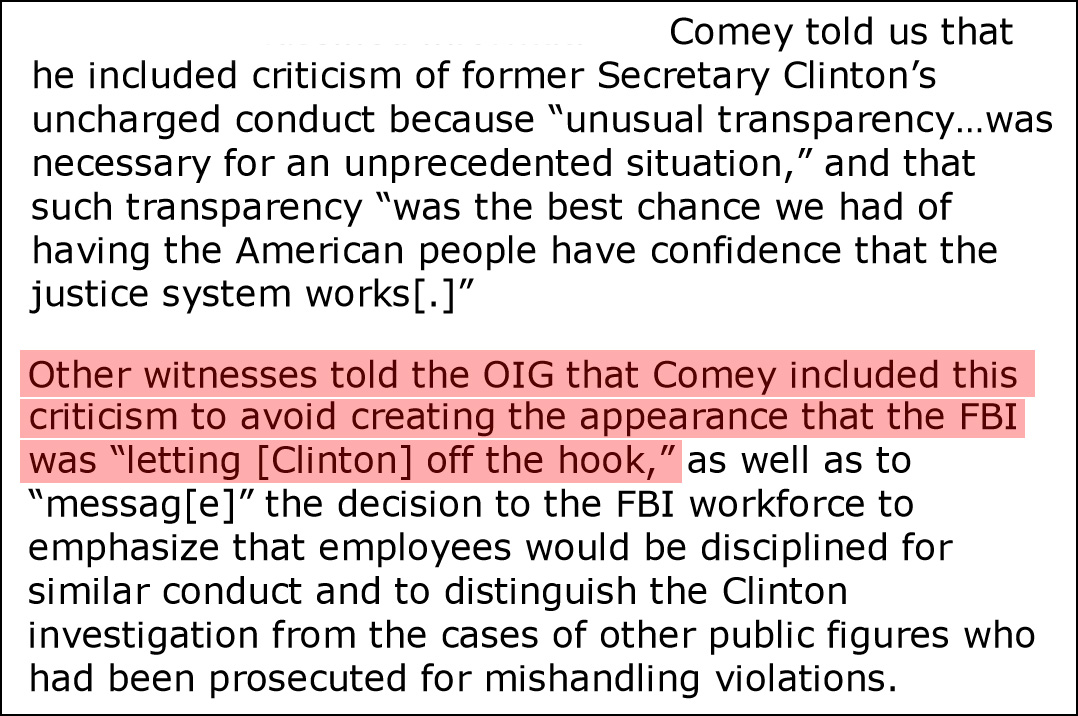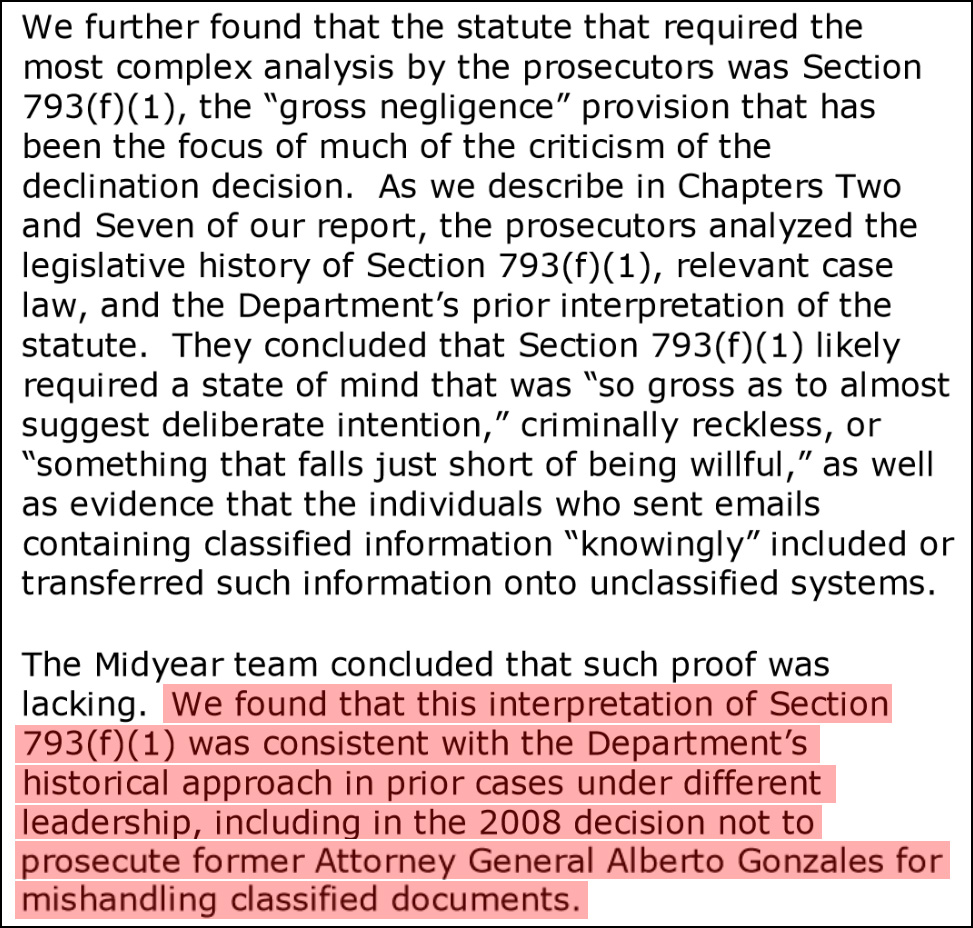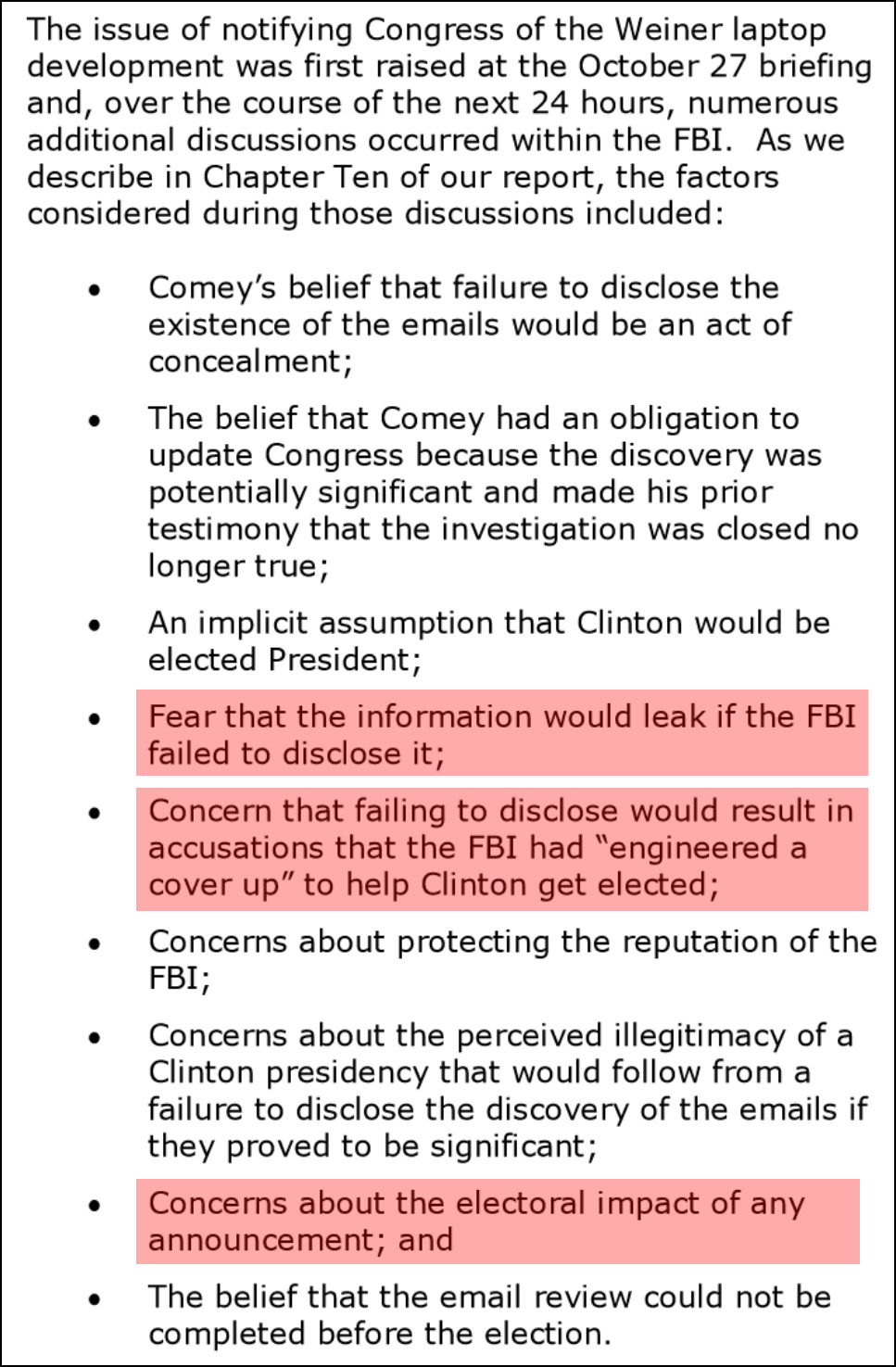Well, it turns out I’ve got a few minutes before my flight leaves, so here are a few excerpts from the inspector general’s report on the FBI’s handling of the 2016 election. First off, we have the reason for James Comey’s unprecedented decision to editorialize about the investigation when he announced in July that the FBI recommended no prosecution of Hillary Clinton:

Uh huh. And what about Comey’s decision not to accuse Clinton of “gross negligence”?

So Clinton did nothing even remotely prosecutable, and she clearly didn’t display “gross negligence.” Despite this, Comey just had to say something to keep Republicans at bay, so he made up his “extremely careless” remark—something that was both inappropriate and lacked any legal foundation.
Finally, there’s this about Comey’s reason for his “October Surprise” letter to Congress shortly before Election Day:

In the end, there’s not much new in the report aside from a text message between two FBI agents in which one suggests that Donald Trump won’t ever become president because “we’ll stop it.” It’s unclear what this means; whether the agent was just boasting to his girlfriend; or what he could have done anyway. In the end, he did nothing. In fact the IG report says that some of the actions he took harmed Clinton and helped Trump.
Hillary Clinton’s emails are going to go down in history as one of the great gaslighting campaigns of all time. After it was all over and the full weight of evidence began trickling out, it turned out that pretty much everyone—including the FBI—concluded that:
- Clinton should have used a State.gov email address for her non-classified messages, but otherwise didn’t really do anything seriously wrong.
- Confidential material was handled just as carefully by Clinton and her aides as it was in other administrations.
- Clinton and her aides took care to phrase things carefully when they were using non-secure email—which includes both State.gov accounts and Clinton’s personal email. Again, this is the same as how other administrations have handled this.
- The FBI’s investigation of Clinton’s email was perfectly reasonable and their conclusions were correct.
- James Comey should not have editorialized about Clinton when he announced the end of the email investigation in July.
- He should not have released his October Surprise letter to Congress.
- No one in the FBI appears to have handled the investigation in a biased way. The one possible exception was the New York field office, which favored Trump and was suspected of being ready to leak news about the Weiner laptop if Comey had kept quiet about it.
There’s much more in the full report here. And if you’re really jonesing for a full walk down memory lane, you might also want to take another look at my review of the FBI report released in September, which almost completely exonerates Clinton. This deep dive from Politico is worth a read too.













